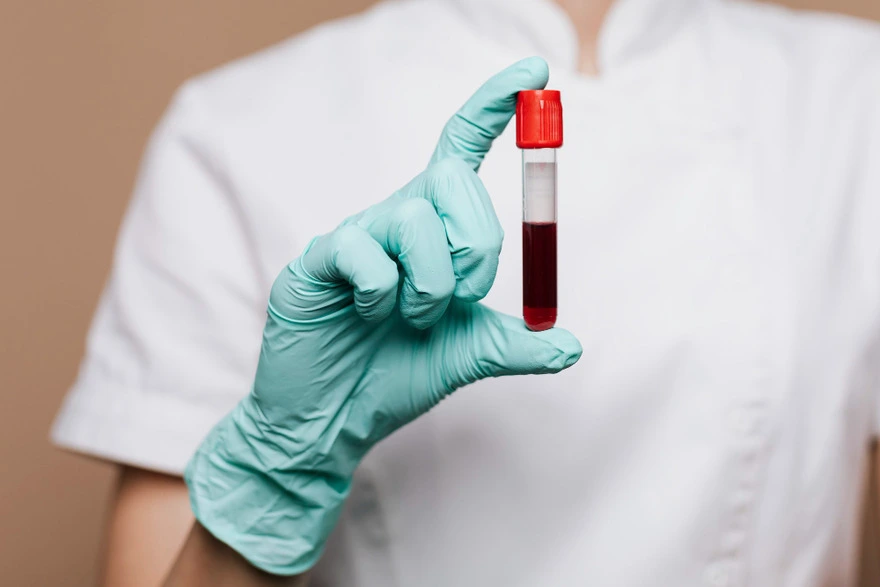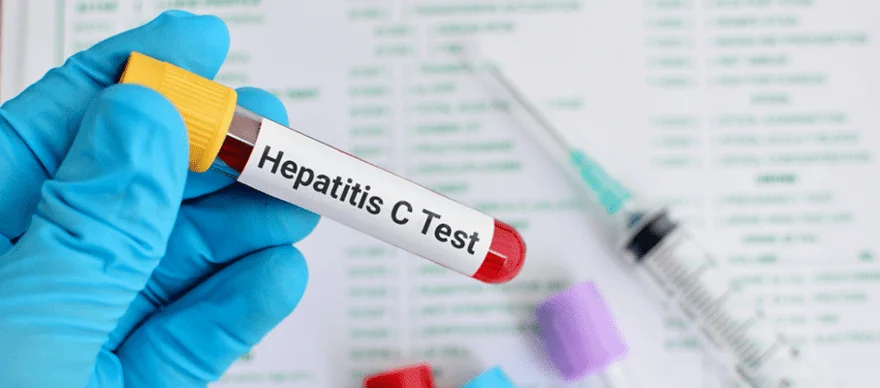Preventive Healthcare
Lupus Anticoagulant Test: Understanding Symptoms and Treatment
7735 Views
0

Are you or your loved one facing concerns related to blood clotting? Understanding the Lupus Anticoagulant Test, its symptoms and treatment options is crucial for your well-being. In this guide, we will explain what the Lupus Anticoagulant Test is and how it can help identify potential health issues.
We will also discuss the symptoms of lupus anticoagulants and what to expect when getting tested for it. It is essential to remember that early diagnosis and treatment are key to managing this condition.
What Is a Lupus Anticoagulant Test?
A Lupus Anticoagulants Test is a blood test that checks for the presence of antibodies associated with the medical condition, lupus anticoagulant (LA). These antibodies are auto-antibodies that can cause abnormal blood clotting, increasing the risk of thrombosis or blood clots in veins and arteries.
The test aims to identify LA, which is a type of anti-phospholipid antibody, and it is often conducted when there are suspicions of antiphospholipid syndrome, a condition characterised by recurrent blood clots.
Lupus anticoagulants test involves several laboratory assessments to detect the presence of lupus anticoagulant in the blood. It is typically ordered when individuals experience unexplained blood clots, recurrent miscarriages or prolonged partial thromboplastin time (a blood clotting test). Accurate detection of lupus anticoagulants is crucial for diagnosing and managing conditions related to abnormal blood clotting.
Lupus Anticoagulant Test Positive
A positive Lupus Anticoagulant Test result indicates the presence of lupus anticoagulant antibodies in the blood. This suggests an increased risk of abnormal blood clot formation and the associated health issues. Further confirmatory testing may be necessary, and a healthcare provider will guide diagnosis and treatment based on the results.
What Is Lupus Anticoagulant?
Lupus anticoagulants are a heterogeneous class of immunoglobulins. Lupus anticoagulant syndrome, an autoimmune blood disorder, involves the production of antibodies, known as lupus anticoagulants, that interfere with normal blood clotting. These antibodies can lead to an increased risk of abnormal blood clot formation, which can cause serious health issues such as deep vein thrombosis or miscarriages.
To diagnose lupus anticoagulants, the Lupus Anticoagulant Test is used. It checks for the presence of these antibodies and is crucial in cases of recurrent unexplained blood clots or pregnancy complications.
It is important to note that having lupus anticoagulants does not necessarily indicate the presence of lupus, but it does require medical attention due to the potential for clotting issues. Accurate detection and management are key to preventing associated complications.
What Are the Symptoms of Lupus Anticoagulants?
Lupus anticoagulants are antibodies that can increase the risk of abnormal blood clotting, leading to various symptoms and health complications. Lupus anticoagulant symptoms primarily result from blood clots and may include the following:
1. Deep Vein Thrombosis (DVT): One common symptom is the formation of blood clots in deep veins, often in the legs. This can cause pain, swelling and redness in the affected limb.
2. Pulmonary Embolism: When a clot dislodges and travels to the lungs, it can lead to a pulmonary embolism, characterised by chest pain, shortness of breath and even life-threatening respiratory issues.
3. Recurrent Miscarriages: Lupus anticoagulants can cause complications during pregnancy, leading to recurrent miscarriages.
4. Skin Issues: Blood clots can restrict blood flow to the skin, potentially causing skin ulcers or gangrene in severe cases.
5. Stroke: Clots in the brain's blood vessels can result in strokes, leading to neurological symptoms like weakness, numbness or difficulty speaking.
Lupus Anticoagulant Normal Range
There is no lupus anticoagulant normal range identifiable from the test like many other blood tests. Instead, it is a qualitative test, meaning it determines the presence or absence of lupus anticoagulant antibodies in the blood. A positive result indicates the presence of these antibodies, whereas a negative result suggests their absence.
How Do I Get Tested for Lupus Anticoagulants?
To get tested for lupus anticoagulants, follow these steps:
1. Consult a Healthcare Provider: Start by scheduling an appointment with your healthcare provider who will assess your medical history and any potential symptoms related to lupus anticoagulants.
2. Blood Test: The primary method for testing lupus anticoagulants is a blood test. During your doctor's visit, they will draw a blood sample, usually from a vein in your arm. This sample will be used to analyse the presence of lupus anticoagulants.
3. Initial Screening Test: The blood sample is subjected to initial screening tests that involve the use of phospholipid-containing reagents. These tests are designed to detect the presence of lupus anticoagulants.
4. Confirmatory Testing: If the initial screening test indicates the presence of lupus anticoagulants, confirmatory testing may be necessary. This includes additional tests to verify the results.
5. Reflex Testing: In some cases, reflex testing may be performed to determine the significance of the anticoagulants and their association with blood clotting disorders.
6. Follow Medical Guidance: Depending on the test results, your healthcare provider will provide guidance on the next steps, potential lupus anticoagulant treatment and any necessary lifestyle changes.
7. Monitoring: If you are diagnosed with lupus anticoagulants, regular monitoring and follow-up appointments will be needed to manage the condition and its associated risks.
Lupus Anticoagulant Test Results
Lupus Anticoagulants Test results are typically reported as positive or negative. A positive result indicates the presence of lupus anticoagulant antibodies in the blood. This suggests an increased risk of abnormal blood clot formation, potentially leading to health issues like deep vein thrombosis, pulmonary embolism or recurrent miscarriages. A positive result may warrant further confirmatory testing to establish the diagnosis.
Conversely, a negative result indicates the absence of lupus anticoagulants in the blood. It is important to note that lupus anticoagulants tests can sometimes yield false-negative results, particularly if the antibodies are present at low levels. Therefore, repeat testing over time may be necessary to confirm their absence accurately.
The interpretation of lupus anticoagulants test results should be done by a healthcare provider who will consider the clinical context and other relevant factors to guide diagnosis and appropriate management if needed. Regular monitoring and follow-up may also be recommended for individuals with positive results to manage associated health risks effectively.
How Are Lupus Anticoagulants Treated?
Treatment for lupus anticoagulants is primarily focused on preventing blood clots and managing underlying conditions, such as antiphospholipid syndrome. The mainstay of treatment is anticoagulation therapy, which involves the use of blood-thinning medications to reduce the risk of clot formation.
Here is a comprehensive overview of the treatment of lupus anticoagulants:
1. Anticoagulation Therapy: Anticoagulation is the cornerstone of treatment. It involves the use of medications like heparin and warfarin, which help prevent blood clots by inhibiting the coagulation process. Heparin is usually used initially because it acts quickly, followed by warfarin for long-term management. Warfarin requires close monitoring to maintain the appropriate level of anticoagulation.
2. High-Dose Corticosteroids: In certain cases, high-dose corticosteroids may be prescribed to reduce inflammation and suppress the immune system's response, especially if the condition is associated with antiphospholipid syndrome. Corticosteroids can help manage symptoms and prevent further complications.
3. Plasma Exchange: Plasma exchange, also known as plasmapheresis, is a procedure where a patient's blood is filtered to remove harmful antibodies and clot-promoting factors. It is used in severe cases or when there is a poor response to other treatments.
4. Immunosuppressive Medications: In cases where lupus anticoagulants are associated with autoimmune diseases like systemic lupus erythematosus, immunosuppressive medications may be considered to modulate the immune response and reduce antibody production.
5. Monoclonal Antibody: Rituximab is one of the monoclonal antibodies that targets specific immune cells. It can be used when other treatments are ineffective or not well-tolerated. Studies have shown positive outcomes in patients with lupus anticoagulants who do not respond well to corticosteroids.
6. Lifestyle Changes: Patients with lupus anticoagulants are often advised to make certain lifestyle changes to reduce their risk of blood clots. These include staying physically active, maintaining a healthy weight and avoiding smoking. Additionally, patients may need to limit their alcohol consumption and avoid medications or supplements that can increase the risk of bleeding.
7. Regular Monitoring: Regular follow-up appointments and monitoring are crucial to adjust medication dosages and assess the effectiveness of treatment. Coagulation profiles and LA tests are typically performed to ensure that the patient's blood remains appropriately anticoagulated.
8. Individualised Treatment: Treatment is highly individualised and depends on the patient's specific condition, medical history and risk factors. The goal is to strike a balance between preventing excessive bleeding and reducing the risk of blood clots.
9. Managing Underlying Conditions: In cases where lupus anticoagulants are associated with underlying conditions like antiphospholipid syndrome, treatment also involves managing those conditions. This may include additional therapies and lifestyle modifications to address the risks associated with the underlying disease.
10. Preventive Measures: Patients with lupus anticoagulants should be educated about the importance of early recognition of symptoms related to blood clots and when to seek medical attention. Preventive measures, such as compression stockings during long periods of immobility and travel, can also be advised.
Conclusion
In conclusion, the treatment of lupus anticoagulants centres around anticoagulation therapy, immunosuppressive medications and individualised care. Regular monitoring, lifestyle adjustments and management of underlying conditions play a vital role. This multifaceted approach aims to reduce the risk of blood clots and complications, with a focus on personalised patient care.
Metropolis Labs is India's trusted diagnostic lab chain, dedicated to accurate blood testing and health check-ups. Their team of skilled blood collection technicians provides at-home sample collection, processed in advanced diagnostic labs. Access your reports conveniently via email and the Metropolis TruHealth app. Specialising in pathology services, they prioritise blood and body fluid testing, excluding radiology, consultation or surgical services.
For dependable diagnostics, choose Metropolis Labs – your partner in healthcare.













1701259759.webp)









 WhatsApp
WhatsApp